SWEDISH
SOUTH ASIAN STUDIES NETWORK
Newsletter 103:
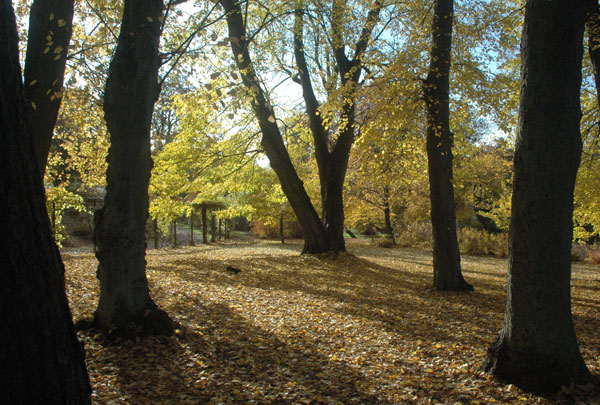 6 November 2009
6 November 2009
| Educational News |
| Lectures and seminars |
| Business and Politics |
| South Asia related Culture |
| New and updated information |
• SASNET meeting for Lund University students and researchers
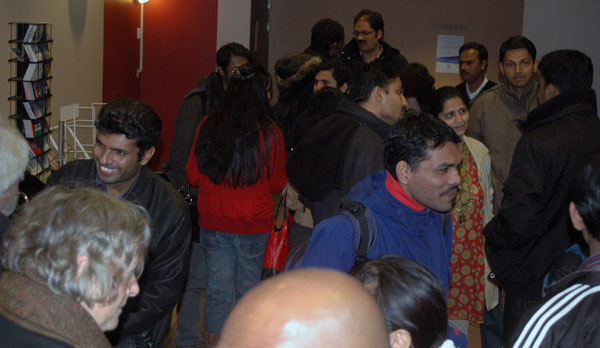 On Thursday 22 October 2009, SASNET invited Lund University Masters students, Ph.D. candidates and senior researchers interested in studies and research related to South Asia (India, Pakistan, Bangladesh, Afghanistan, Sri Lanka, Nepal, Bhutan, and Maldives) to an open meeting. Nearly 50 people turned up for the meeting that was intended to increase the interest in pursuing South Asia related education and research at Lund University. Eminent researchers involved in South Asia related projects, including Prof. Baboo Nair, Dept. of Applied Nutrition, Prof. Staffan Lindberg, Dept. of Sociology, Prof. Rajni Hatti Kaul, Dept. of Biotechnology, and Dr. Catarina Kinnvall, Dept. of Political Science, gave presentations on their work. Dr. Vipin Negi, Centre for East and South-East Asian Studies, and Dr. Gupinath Bhandari, Lund University Centre for Risk Assessment and Management (LUCRAM), also told about their experiences being scholarship holders through the Erasmus Mundus External Cooperation Window Programme.
After the meeting, the participants stayed on for snacks and refreshments.
Venue for the meeting: Kårhuset, Hörsalen, John Ericssons väg 3, Lund. Read a report from the meeting (with photos).
On Thursday 22 October 2009, SASNET invited Lund University Masters students, Ph.D. candidates and senior researchers interested in studies and research related to South Asia (India, Pakistan, Bangladesh, Afghanistan, Sri Lanka, Nepal, Bhutan, and Maldives) to an open meeting. Nearly 50 people turned up for the meeting that was intended to increase the interest in pursuing South Asia related education and research at Lund University. Eminent researchers involved in South Asia related projects, including Prof. Baboo Nair, Dept. of Applied Nutrition, Prof. Staffan Lindberg, Dept. of Sociology, Prof. Rajni Hatti Kaul, Dept. of Biotechnology, and Dr. Catarina Kinnvall, Dept. of Political Science, gave presentations on their work. Dr. Vipin Negi, Centre for East and South-East Asian Studies, and Dr. Gupinath Bhandari, Lund University Centre for Risk Assessment and Management (LUCRAM), also told about their experiences being scholarship holders through the Erasmus Mundus External Cooperation Window Programme.
After the meeting, the participants stayed on for snacks and refreshments.
Venue for the meeting: Kårhuset, Hörsalen, John Ericssons väg 3, Lund. Read a report from the meeting (with photos).
• More information about SASNET and its
activities
See SASNET’s page, http://www.sasnet.lu.se/sasnet.html
• Stockholm University extends its collaboration with JNU
 Prof. B B Bhattacharya, Vice Chancellor, Jawaharlal Nehru University (JNU), New Delhi, India, visited Sweden (Stockholm and Uppsala), Norway (Oslo) and Finland (Jyväskylä) in the last week of October 2009. He had been invited by the Nordic Centre in India university consortium (NCI).
Prof. B B Bhattacharya, Vice Chancellor, Jawaharlal Nehru University (JNU), New Delhi, India, visited Sweden (Stockholm and Uppsala), Norway (Oslo) and Finland (Jyväskylä) in the last week of October 2009. He had been invited by the Nordic Centre in India university consortium (NCI).
In Stockholm, a student exchange agreement was signed during a meeting with Pro-Vice-Chancellor Lena Gerholm. This agreement is a complimentary to the general Memorandum of Understanding (MoU) that was signed between the two capital universities in March 2009. The MoU between Stockholm University
and JNU covers a wide range of disciplines, including Political Science, Environmental Studies, Energy and Security, Social Anthropology, Physical and Human Geography and Regional Development, Gender Studies, Central and South Asian Studies, Economic History and International Relations, and International Law. Psychology, History, and Sociolinguistics may also be included.
Among other things, JNU and SU now plan for common workshops. The coordinator for the Indo-Swedish collaboration on the Swedish side is Dr. Per Hilding, Dept. of Economic History, Stockholm University, a member of SASNET’s board.
• University of Copenhagen launches Centre of Global South Asian Studies
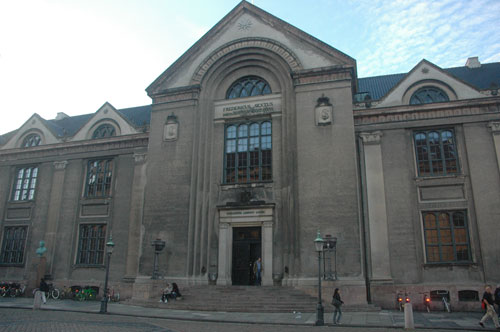 The University of Copenhagen has established a Centre of Global South Asian Studies. This new trans-disciplinary research centre has been realised through the university’s ambitious Asian Dynamics Initiative (ADI), and its role should be to facilitate research and teaching on India, Pakistan, Bangladesh, Afghanistan, Nepal and Sri Lanka at the University of Copenhagen. It does not confine itself to the study of the region, rather exploring the historical and contemporary connections within the Global South that underpin the modern formations of society, culture and politics within South Asia and its diaspora. The Centre is a completely new initiative, that soon will be formally inaugurated.
The University of Copenhagen has established a Centre of Global South Asian Studies. This new trans-disciplinary research centre has been realised through the university’s ambitious Asian Dynamics Initiative (ADI), and its role should be to facilitate research and teaching on India, Pakistan, Bangladesh, Afghanistan, Nepal and Sri Lanka at the University of Copenhagen. It does not confine itself to the study of the region, rather exploring the historical and contemporary connections within the Global South that underpin the modern formations of society, culture and politics within South Asia and its diaspora. The Centre is a completely new initiative, that soon will be formally inaugurated.
The Centre is located in an international scholarly network that brings together partners through research programmes from University of Delhi, and Jawaharlal Nehru University, India; University of Oxford, UK; New York University, and Columbia University, USA; CERI-Sciences Po, Paris, France; and in Denmark, Århus University and Danish Institute of International Studies (DIIS).
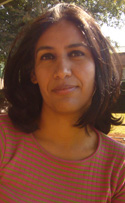 Dr. Ravinder Kaur (photo) at the Dept. of Cross-Cultural and Regional Studies, University of Copenhagen, plays a key role within the new centre. Recently, she was awarded DKK 3.9 m for a collective research programme entitled ”Nation in Motion: Globalization, Development and Governance in 'New' India”, from the Danish Council for Social Science Research. The programme will run from 2010–2014.
Dr. Ravinder Kaur (photo) at the Dept. of Cross-Cultural and Regional Studies, University of Copenhagen, plays a key role within the new centre. Recently, she was awarded DKK 3.9 m for a collective research programme entitled ”Nation in Motion: Globalization, Development and Governance in 'New' India”, from the Danish Council for Social Science Research. The programme will run from 2010–2014.
Abstract: This interdisciplinary research program concerns the nature, effects and fragilities of India’s imminent global ‘rise’. Through three integrated studies on recent development interventions and new governing practices, the researchers explore different processes of globalization that are shaping ‘new’ India within and how India itself is being projected outside as a global power. The program will generate fresh empirical data from two locations in urban Delhi and rural West Bengal in order to map out the historical and contemporary patterns of inequality emerging in the making of global India, and the ways in which they are leveled, projected and even subverted on a global scale. Theoretically the project aims to break fresh ground in the interface of globalization and nation-state by showing how the ‘global’ nation is manufactured in specific locations, and how a new species of relations conjugate the nation and the state in a global context.
More information about the Centre of Global South Asian Studies.
• Indian visiting professors scheme at Copenhagen Business School
 The Asia Research Centre (ARC) at Copenhagen Business School is another ambitious Danish initiative to undertake high-quality research on current developments in the Asian region, including India and South Asia. ARC organises workshops, international conferences and guest lectures on Asia. On Monday 23 November 2009, ARC holds an opening reception at its brand new premises in a beautifully restored building that used to be the heart of the Royal Copenhagen Porcelain Factory (now being part of Copenhagen Business School) at Porcelænshaven 22, Frederiksberg. More information.
The Asia Research Centre (ARC) at Copenhagen Business School is another ambitious Danish initiative to undertake high-quality research on current developments in the Asian region, including India and South Asia. ARC organises workshops, international conferences and guest lectures on Asia. On Monday 23 November 2009, ARC holds an opening reception at its brand new premises in a beautifully restored building that used to be the heart of the Royal Copenhagen Porcelain Factory (now being part of Copenhagen Business School) at Porcelænshaven 22, Frederiksberg. More information.
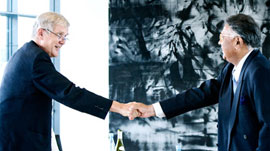 Starting from the fall of 2009, Senior Visiting Professors from India play an important role at Copenhagen Business School (CBS). On 16 July 2009, CBS President Finn Junge-Jensen and the Indian Ambassador to Denmark, Yogesh K. Gupta, signed a Memorandum of Understanding on a visiting professorship scheme (photo from the signing ceremony). Each year the Government of India (through the Indian Council for Cultural Relations, ICCR) in consultation with CBS will appoint a new Senior Visiting Professor in Indian Economics or Social Sciences. They are hosted by the Asia Research Centre. More information.
Starting from the fall of 2009, Senior Visiting Professors from India play an important role at Copenhagen Business School (CBS). On 16 July 2009, CBS President Finn Junge-Jensen and the Indian Ambassador to Denmark, Yogesh K. Gupta, signed a Memorandum of Understanding on a visiting professorship scheme (photo from the signing ceremony). Each year the Government of India (through the Indian Council for Cultural Relations, ICCR) in consultation with CBS will appoint a new Senior Visiting Professor in Indian Economics or Social Sciences. They are hosted by the Asia Research Centre. More information.
 The initiative came from
Professor Anthony D'Costa (photo), CBS' first Professor of Indian Studies and engaged in researching the political economy of Indian development and industry. He has spearheaded the initiative in establishing a world class research environment on Contemporary India and promoting serious scholarship on India.
The initiative came from
Professor Anthony D'Costa (photo), CBS' first Professor of Indian Studies and engaged in researching the political economy of Indian development and industry. He has spearheaded the initiative in establishing a world class research environment on Contemporary India and promoting serious scholarship on India.
ICCR has similar agreements with around 30 other universities all over the world, such as Sorbonne University in Paris, University of Pennsylvania, Philadelphia, USA, and University of KwaZulu Natal, Durban, South Africa. The Indian Professors are selected among candidates from India's leading universities and business schools.
The Asia Research Centre also coordinates the CBS India Portal, an Internet gateway providing detailed information about all India related activities at the Copenhagen Business School. Here you can find information about researchers working on India, classes, seminars and workshops about India, India related projects, publications and activities, as well as information on networking. Go to the CBS Asia Portal.
• India Water Portal further developed
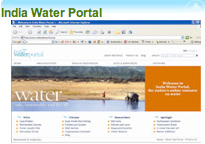 The India Water Portal is an open, inclusive, web-based platform for sharing water management knowledge amongst practitioners and the general public. It is a voluntary effort being coordinated by Arghyam, a Bangalore based non-profit trust that works in the area of water. The Water Portal grew out of the felt need for a single location pulling together various resources in the area of water. This was one of the themes that came out of the First Arghyam conference held in February 2005. The National Knowledge Commission (NKC) has been a strong proponent of the idea of knowledge portals in various areas, including water. NKC has been a strong supporter in the creation of the water portal, creating regional language water portals, and working with government departments related to water.
An updated version of the India Water Portal has now been released. It has become more user-friendly, participative
and fun resource, including flickr, Facebook, Twitter, and YouTube links.
The India Water Portal is an open, inclusive, web-based platform for sharing water management knowledge amongst practitioners and the general public. It is a voluntary effort being coordinated by Arghyam, a Bangalore based non-profit trust that works in the area of water. The Water Portal grew out of the felt need for a single location pulling together various resources in the area of water. This was one of the themes that came out of the First Arghyam conference held in February 2005. The National Knowledge Commission (NKC) has been a strong proponent of the idea of knowledge portals in various areas, including water. NKC has been a strong supporter in the creation of the water portal, creating regional language water portals, and working with government departments related to water.
An updated version of the India Water Portal has now been released. It has become more user-friendly, participative
and fun resource, including flickr, Facebook, Twitter, and YouTube links.
Go to the updated India Water Portal.
• SPIDER to be hosted solely by Stockholm University
 From 1 January 2010, the Swedish Program for ICT in Developing Regions (SPIDER) will be hosted solely by Stockholm
University. SPIDER was created
in 2004 by the Swedish International Development Cooperation Agency
(Sida). It has been jointly hosted by the Royal Institute of Technology
(KTH) and Stockholm University.
However, due to reorganization at KTH, SPIDER will henceforth be hosted by Stockholm
University only. It remains to be a
centre within the Dept. of Computer and Systems Sciences (DSV), which until now has been a department of both KTH and
Stockholm
University. SPIDER was also created with a view to act as a Swedish resource base in the area of ICT, and thus one of its important functions has been to provide advice and assistance to Sida, the Ministry for Foreign Affairs and the Swedish Embassies in developing countries. During the funding period 2007-2009, Sida
has contributed SEK 55 m and KTH an additional SEK 5 m for
the core funding of SPIDER. More information about SPIDER.
From 1 January 2010, the Swedish Program for ICT in Developing Regions (SPIDER) will be hosted solely by Stockholm
University. SPIDER was created
in 2004 by the Swedish International Development Cooperation Agency
(Sida). It has been jointly hosted by the Royal Institute of Technology
(KTH) and Stockholm University.
However, due to reorganization at KTH, SPIDER will henceforth be hosted by Stockholm
University only. It remains to be a
centre within the Dept. of Computer and Systems Sciences (DSV), which until now has been a department of both KTH and
Stockholm
University. SPIDER was also created with a view to act as a Swedish resource base in the area of ICT, and thus one of its important functions has been to provide advice and assistance to Sida, the Ministry for Foreign Affairs and the Swedish Embassies in developing countries. During the funding period 2007-2009, Sida
has contributed SEK 55 m and KTH an additional SEK 5 m for
the core funding of SPIDER. More information about SPIDER.
• Major Research Council grant to Professor Sten Widmalm
One South Asia related project was given a three-years grant for the period 2010-12 from the Swedish Research Council for
research within the fields of Humanities and Social Sciences
2009. The decision was taken on 14 October 2009. Prof. Sten Widmalm, Dept. of Government, Uppsala University, was awarded SEK 3.9 m for a project entitled ”Tolerance
in Challenging Political Environments in Uganda, Kenya, India and Pakistan” . Already in 2006, Prof. Widmalm received a SASNET
planning grant for this project. The planning grant was used for carrying
out a preparatory visit to India and Pakistan (a planning grant for the
pilot survey in Uganda and Kenya was given bySida/Sarec).
Research partners in South Asia have been Dr. Sarwar
Bari Pattan, Islamabad,
Pakistan; Dr. Yogesh Kumar, Director for
Samarthan, Bhopal, Madhya Pradesh, India; and Professor Raman
Kutty, Health Action
by People, Thiruvananthapuram, Kerala, India.
• Bank of Sweden Tercentenary Foundation grant to Dr. Marie Larsson
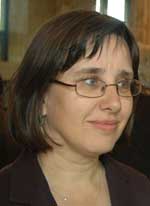 On October 22, 2009, Dr. Marie Larsson, Dept. of Social Anthropology, Stockholm University, was awarded SEK 1.985 M as a three-year grant (2010-12) by the Bank of Sweden Tercentenary Foundation (Stiftelsen Riksbankens jubileumsfond), for a new research project entitled entitled ”The Invisible labourers! Transnational and local activism among home-based women workers in Manila, Leeds and Ahmedabad”. In India, Dr. Larsson focuses on SEWA (Self-employed Women's
Association, and its role in the network entitled Homenet South Asia (with an office in Ahmedabad).
On October 22, 2009, Dr. Marie Larsson, Dept. of Social Anthropology, Stockholm University, was awarded SEK 1.985 M as a three-year grant (2010-12) by the Bank of Sweden Tercentenary Foundation (Stiftelsen Riksbankens jubileumsfond), for a new research project entitled entitled ”The Invisible labourers! Transnational and local activism among home-based women workers in Manila, Leeds and Ahmedabad”. In India, Dr. Larsson focuses on SEWA (Self-employed Women's
Association, and its role in the network entitled Homenet South Asia (with an office in Ahmedabad).
Marie Larsson defended her doctoral dissertation about
mobilisation among women against men’s alcohol consumption
in Andhra Pradesh in 2006. The thesis is
titled ”When Women Unite! The
Making of the Anti-Liquor Movement in Andhra Pradesh, India”. More information.
• Doctoral dissertation on Design Support for e-Commerce Information Systems
Ananda Edirisuriya, Department of Computer and Systems Sciences (DSV),
Stockholm University and Royal Institute of Technology (KTH), will defend his doctoral dissertation on
”Design Support for e-Commerce Information Systems using Goal, Business
and Process Modelling”, on Tuesday 20 November 2009, at 14.00. Faculty opponent is Prof. Michael Petit, Computer Science Faculty, University of Namur, France. Mr. Edirisuriya is working as a senior lecturer in the Dept. of Statistics and Computer Sciences, University of Sri Jayawardenepura, Sri Lanka, and has been involved in a Sida funded split PhD program for Sri Lankan doctoral students organised by Stockholm University/KTH (more information). His main research interest is IT systems in business process management, and enterprise modelling. Venue: DSV, Forum, Sal C, Isafjordsgatan 39, Kista.
• Swedish research network for sustainable agriculture and forestry for development
 The Swedish Research Network: Sustainable Agriculture and Forestry for Development (Agri4D) was founded in 2009 with the overall goal of contributing to agricultural development and poverty alleviation in developing countries by stimulating the utilisation, and growth, of Swedish research competence. The Agri4D research network is funded by the Swedish International Development Cooperation Agency, Sida. The network works to promote sustainable development in agricultural sciences (including forestry, fisheries, veterinary practice and horticulture). Its well-designed Internet Gateway is meant to be a portal that will allow an overview of current Swedish research and educational competence in pro-poor agricultural development. The network is hosted by the the Swedish University of Agricultural Sciences (SLU). The coordinator is Dr. Gert Nyberg from the Dept. of Forest Ecology and Management at SLU in Umeå.
The Swedish Research Network: Sustainable Agriculture and Forestry for Development (Agri4D) was founded in 2009 with the overall goal of contributing to agricultural development and poverty alleviation in developing countries by stimulating the utilisation, and growth, of Swedish research competence. The Agri4D research network is funded by the Swedish International Development Cooperation Agency, Sida. The network works to promote sustainable development in agricultural sciences (including forestry, fisheries, veterinary practice and horticulture). Its well-designed Internet Gateway is meant to be a portal that will allow an overview of current Swedish research and educational competence in pro-poor agricultural development. The network is hosted by the the Swedish University of Agricultural Sciences (SLU). The coordinator is Dr. Gert Nyberg from the Dept. of Forest Ecology and Management at SLU in Umeå.
• GADNETcreated sub-network entitled GADIP
GADNET (Gender and Development Network) is another
Sida/SAREC funded multidisciplinary national network of Swedish
researchers and doctorate students. The network, with
specific research interests in gender and development, was formed
in 2004 (three years after SASNET) and is institutionally based at the Global Gender Studies, School of Global Studies, Gothenburg University.
Dr. Gunilla Blomqvist, Division of Peace and Development Research (PADRIGU) is the GADNET coordinator. The network is funded by Sida/SAREC for the period 2004-09. GADNET organises activities such as seminars and conferences
all over Sweden, via key contact persons (called nodes) at different
universities and university colleges. They form
sub-divisions of the national network. GADNET regularly arranges
DreamCatcher workshops, as they are called. The 2009 GADNET Dreamcatcher/GADIP workshop was entitled ”Gendered Resistance at times of Economic Crisis”, and was held at the School of Global Studies, University of Gothenburg on Friday 30 October 2009.
Recently, GADNET created a sub-network entitled GADIP. Its role should be to bridge the
gap in knowledge and experiences between
scholars and practitioners, building on excellent contacts
with researchers, networks and practitioners
in Europe and the South. Bi-annual combined
GADNET/GADIP workshops will be arranged
on highly topical issues, for instance on ’Gendered Migration’ (planned for the spring 2010). Keynote
speakers will be renowned researchers and
activists. More
information on GADNET.
• Devnet extends application period for its seminar grants
 DevNet, the Swedish Development Research Network on Nature, Poverty and Power, is also financed by a Sida research network grant for the period 2009–2011. Devnet was launched in order to support activities related to sustainable development at Swedish universities. The network is hosted by the Uppsala Center for Sustainable Development (jointly managed by Uppsala University and the Swedish Agricultural University, SLU).
DevNet, the Swedish Development Research Network on Nature, Poverty and Power, is also financed by a Sida research network grant for the period 2009–2011. Devnet was launched in order to support activities related to sustainable development at Swedish universities. The network is hosted by the Uppsala Center for Sustainable Development (jointly managed by Uppsala University and the Swedish Agricultural University, SLU).
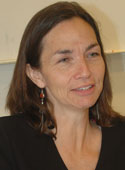 Dr. Heidi Moksnes, researcher in social anthropology, is the
DevNet coordinator. It organises seminars and conferences, and recently launched a networking grants programme. Four grants of SEK 10 000 each will be given to seminar activities anywhere in Sweden focusing on the concerns and interests of people living in poverty, highlighting the interrelation between poverty, power and the use of natural resources. Especially newly examined researchers and PhD students at Swedish universities and university colleges are invited to apply. Last date for application has been extended to November 15, 2009. More information.
Dr. Heidi Moksnes, researcher in social anthropology, is the
DevNet coordinator. It organises seminars and conferences, and recently launched a networking grants programme. Four grants of SEK 10 000 each will be given to seminar activities anywhere in Sweden focusing on the concerns and interests of people living in poverty, highlighting the interrelation between poverty, power and the use of natural resources. Especially newly examined researchers and PhD students at Swedish universities and university colleges are invited to apply. Last date for application has been extended to November 15, 2009. More information.
• Danish participation in third mission by Chittagong Hill Tracts Commission
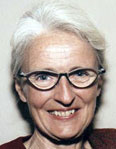 Ms. Ida Nicolaisen, Senior Researcher at the Nordic Institute of Asian Studies (NIAS) at University of Copenhagen took part in the third mission by the Chittagong Hill Tracts (CHT) Commission, on 10–18 August 2009. A report has now been published, setting out the activities of the Commission, following steps taken by the Awami League-led Bangladeshi Government to implement provisions of the CHT Accord of 1997.
The report also follows up on the issues and recommendations raised in the report of the CHT Commission’s second mission in Bangladesh in February 2009. The third mission aimed at assessing the situation in the CHT with regard to ongoing reports of human rights violations and monitoring the implementation of the different provisions of the CHT Accord. It also aimed at following up on recommendations made during the previous missions and engaging in dialogue with concerned parties. Accordingly the mission held high-level meetings with the Prime Minister Sheikh Hasina Wazed and concerned Ministers, the CHT Land Commission and the Law Commission. It also met brigade commanders, senior police officers, political party and civil society representatives and interviewed victims of human rights violations among the indigenous peoples in the CHT. Read the Report of the CHT Commission’s third mission to Bangladesh.
Ms. Ida Nicolaisen, Senior Researcher at the Nordic Institute of Asian Studies (NIAS) at University of Copenhagen took part in the third mission by the Chittagong Hill Tracts (CHT) Commission, on 10–18 August 2009. A report has now been published, setting out the activities of the Commission, following steps taken by the Awami League-led Bangladeshi Government to implement provisions of the CHT Accord of 1997.
The report also follows up on the issues and recommendations raised in the report of the CHT Commission’s second mission in Bangladesh in February 2009. The third mission aimed at assessing the situation in the CHT with regard to ongoing reports of human rights violations and monitoring the implementation of the different provisions of the CHT Accord. It also aimed at following up on recommendations made during the previous missions and engaging in dialogue with concerned parties. Accordingly the mission held high-level meetings with the Prime Minister Sheikh Hasina Wazed and concerned Ministers, the CHT Land Commission and the Law Commission. It also met brigade commanders, senior police officers, political party and civil society representatives and interviewed victims of human rights violations among the indigenous peoples in the CHT. Read the Report of the CHT Commission’s third mission to Bangladesh.
• Bhopal Bus Tour reminds Europe about the 1984 disaster
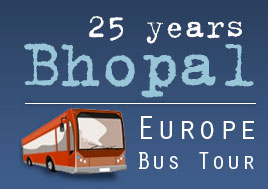 Amnesty International has launched a bus tour, together with partner organisations – the International Campaign for Justice in Bhopal and the Bhopal Medical Appeal, which travels throughout Europe for eight weeks from 17 October until 2 December – the day of the 25th anniversary of the tragic Bhopal disaster. The tour stops in Germany, Italy, the Netherlands, Sweden, Denmark, Belgium, France and the United Kingdom. Activists from Bhopal, who were directly affected by the disaster, are travelling on the bus and share their experiences of how the gas leak has affected their lives and how they’ve been campaigning for justice for 25 years. In Sweden, the Bhopal Bus Tour visits Stockholm on 15th and 18th November, Gothenburg on 18–19 November, and Lund on Friday 20 November. In Denmark, the bus visits Copenhagen on Saturday 28 November. More information about the Bhopal Bus Tour.
Amnesty International has launched a bus tour, together with partner organisations – the International Campaign for Justice in Bhopal and the Bhopal Medical Appeal, which travels throughout Europe for eight weeks from 17 October until 2 December – the day of the 25th anniversary of the tragic Bhopal disaster. The tour stops in Germany, Italy, the Netherlands, Sweden, Denmark, Belgium, France and the United Kingdom. Activists from Bhopal, who were directly affected by the disaster, are travelling on the bus and share their experiences of how the gas leak has affected their lives and how they’ve been campaigning for justice for 25 years. In Sweden, the Bhopal Bus Tour visits Stockholm on 15th and 18th November, Gothenburg on 18–19 November, and Lund on Friday 20 November. In Denmark, the bus visits Copenhagen on Saturday 28 November. More information about the Bhopal Bus Tour.
• KKH’s Informal Cities project and book presented in India wit SASNET support
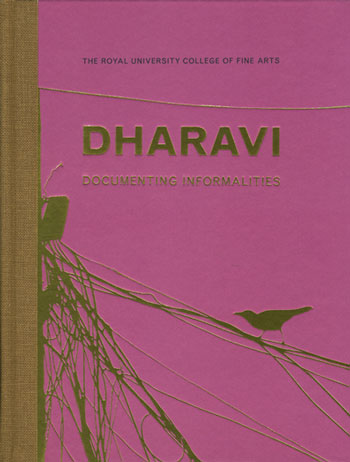 Informal Cities, the project spearheaded by a group of professional artists and
architects from the Dept. of Art & Architecture, Royal University College of Fine Arts (KKH) in
Stockholm, and planned in collaboration with the Society for the
Promotion of Area Resource Centres (SPARC) in Mumbai, now exhibits its results in India.
Informal Cities, the project spearheaded by a group of professional artists and
architects from the Dept. of Art & Architecture, Royal University College of Fine Arts (KKH) in
Stockholm, and planned in collaboration with the Society for the
Promotion of Area Resource Centres (SPARC) in Mumbai, now exhibits its results in India.
In 2008,
Dr. Maria Lantz from KKH received a SASNET planning grant to arrange this interdisciplinary workshop on DHARAVI: Documenting Informalities. During the period 31 October – 8 November 2009, the exhibition is on display in Coomaraswamy Hall at the
Chhatrapati Shivaji Maharaj Vastu Sangrahalay (former Prince of
Wales Museum) in Mumbai. The exhibition serves as a backdrop for two seminars, the first
looking at the ethics, responsibility and communication of
professionals working with informal cities, and the second focusing on
redevelopment in Dharavi and internationally.
The exhibition also marks the formal release of the Indian edition
of Dharavi: Documenting Informalities, a book produced by KKH, and resulting from past collaboration with SPARC and
residents of Dharavi. More information.
• Last chance to apply for EMECW mobility programmes for India and South Asia
Lot 11 (South Asia), programme 1
Consortium entitled ”Erasmus Mundus Mobility for Life” formed by 8 universities in Europe, and 11 universitites in Asia ((Bangladesh University of Engineering & Technology, Asian University for Women, and Chittagong University, Bangladesh; Royal University of Bhutan; Institute of Engineering at Tribhuvan University, Nepal; Mehran University of Engineering & Technology in Jamshoro, Sindh, Pakistan; Kabul University, Afghanistan; University of Calcutta, and Sinhgad Institute of Technology in Lonavala, Maharashtra, India; Bandung Institute of Technology, Indonesia; and Mae Fah Luang University, Thailand).
The programme is coordinated by Aalborg University, Denmark. Prof. Ramjee Prasad at the Dept. of Communication Technology, Aalborg University, is the main coordinator. Mobility flow: 179 individuals. More information about the programme.
The application window will be open from November 15, 2009 to December 31, 2009.
More information on the consortium web site, http://www.erasmus.mobilityforlife.aau.dk/
Lot 11 (South Asia), programme 2
Consortium formed by 11 universities in Europe, and 9 universitites in Asia (Kabul University, Afghanistan; Bangladesh University of Engineering & Technology, and University of Dhaka, Bangladesh; Royal University of Bhutan; Institute of Management Technology, Ghaziabad, India; Airlangga University, Indonesia; Tribhuvan University, Nepal; International Islamic University, Islamabad, and Hajvery University, Lahore, Pakistan).
The programme is coordinated by Vrije Universiteit Brussel, Belgium. The coordinator is Mr Filip Callewaert. Mobility flow: 240 individuals. More information about the programme (as a pdf-file).
Applications for BA/MA students, Postdoc researchers and Academic staff are open since 1 November 2009. PhD applications starting from 12 November. Results will be announced during December 2009.
More information on the consortium web site, http://www.lot11.emecw.com/
Lot 13 (India), programme 1
Consortium formed by 9 universities in Europe, and 8 universities in India (Amrita University, Coimbatore; Anna University, Chennai; Indian Institute of Technology (IIT) Delhi; Indian Statistical Institute, Kolkata; Jadavpur University, Kolkata; Kakatiya University, Warangal; University of Pune; and Centre of Environmental Planning and Technology, Ahmedabad).
The programme is coordinated by Politecnico di Torino, Italy. Mobility flow: 200 individuals. Nordic partner universities in the consortium: Royal Institute of Technology (KTH), Stockholm; and Helsinki University of Technology, Finland. The coordinator is Bianca Buttiglione at Politecnico di Torino. More information about the programme (as a pdf-file).
The call for application for the 2009/10 Academic Year is open till 6 December 2009.
More information on the consortium web site, http://www.india4eu.eu/
Lot 13 (India), programme 2
Consortium formed by 12 universities in Europe, and 8 universities in India (University of Delhi; Jadavpur University, Kolkata; University of Pune; University of Kerala; Indian Institute of Technology (IIT) Kanpur; Tata Institute of Social Sciences (TISS), Mumbai; Pravara Institute of Medical Sciences, Loni, Maharashtra; Anand Agricultural University, Gujarat).
The programme is coordinated by Lund University, Sweden. Dr. Sidsel Hansson (photo), Division of International Relations, Lund University, is the main coordinator. Mobility flow: 183 individuals. Other Nordic partner universities in the consortium: Karolinska Institutet, Stockholm; and Norwegian University of Science and Technology (NTNU), Trondheim. More information about the programme (as a pdf-file).
This programme was also selected last year (2008) along with three other India/South Asia related EMECW mobility programmes. The Lund University programme was then entitled Lot 15, and included a much wider mobility scheme between Europe and India than the new Lot 13 lots.
The partnership programme that was selected in 2008 is currently running at full speed from the Summer 2009. The mobility of approximately 340 individuals consisists of a flow by 75 % from India to Europe, and 25 % from Europe to India. More information on the consortium web site.
A new Call for Mobility applications has been issued for the Erasmus Mundus External Cooperation Window (EMECW) lot 13 programme coordinated by Lund University. This second round will award 183 scholarships for all mobility groups starting in 2010 (with start dates between April 1 and September 1, 2010).
The call for applications is open till 15 November 2009.
All applications have to be done through the online form on the consortium web site. Duration of the scholarships vary from 1 to 34 months. The scholarships cover travel, insurance, possible tuition, living expenses and housing costs. More information about the application procedure, target groups, admission requirements, and selection process.
Each university in the consortium has decided which courses they offer for scholarship holders. Search for which courses are offered at different levels.
Lot 13 (India), programme 3
Consortium entitled ”EURINDIA” formed by 10 universities in Europe, and 8 universities in India (Anna University, Chennai; Anurag Narayan College, Gaya (affiliated to Patna University); Indian Institute of Technology (IIT) Guwahati; Indian Institute of Technology (IIT) Roorkee; National Law School of India University, Bangalore; Tamil Nadu Agricultural University (TNAU), Coimbatore; University of Kalyani, West Bengal; and University of Pune). Three associated institutions are also part of the project, one in Europe and two in India – CII-S Godrej Green Business Centre, Hyderabad; and Mahratta Chamber of Commerce, Industries and Agriculture.
The programme is coordinated by Royal Institute of Technology (KTH), Stockholm, Sweden. Ms. Alphonsa Lourdudoss (photo) at the International Office, KTH, is the main coordinator. Mobility flow: 201 individuals. More information about the programme.
The EURINDIA programme held its first Consortium Meeting at KTH in Stockholm 21–23 September 2009. Representatives from the European and Indian partner universities met to discuss practical details around the launch of the mobility programme.
The scholarships are intended for undergraduate, master's and doctorate students, as well as post-doc researchers and academic staff.
The application deadline is Thursday 29 November 2009.
More information on the EURINDIA consortium web page: http://intra.itm.kth.se/kth-informerar/planering-uppfoljning/
Lot 13 (India), programme 4
Consortium entitled ”WILLPower, Window India Learning Link Power” formed by 10 universities in Europe, and 7 universities in India (Indian Institute of Science (IISc), Bangalore; Anna University, Chennai; University of Delhi; Indian Institute of Technology (IIT) Madras, Chennai; Indian Institute of Technology (IIT) Guwahati; Indian Institute of Technology (IIT) Kanpur; Indian Institute of Technology (IIT) Rajasthan).
The programme is coordinated by Ecole Centrale Nantes, France. Mobility flow: 210 individuals. The Co-ordinator is Yvon Riou at Ecole Centrale Nantes. More information about the programme (as a pdf-file).
The call for application will be closed on November 20, 2009. The mobility will start by February 2010, in the beginning of the second half of the European academic year. The latest individual mobility will start before september 1, 2010.
More information on the WILLPower consortium web page: http://www.willpower.fr/
• More information about South Asia related
research at Swedish and Nordic universities
See SASNET’s page, http://www.sasnet.lu.se/research.html
• Time to apply for the NCI 2010 spring semester course in Hyderabad
 The Nordic Centre in India organises full semester
programmes for Nordic students at the University of Hyderabad.
The Nordic Centre has made an arrangement with the University
of Hyderabad and its Study India Program (SIP) to allow
15 Nordic students to be admitted there, and to take courses
on various social science and humanities subjects. The aim of the agreement is to allow Nordic students to study India in India, to give them both a sound academic knowledge of India as well as the experience you only gain by living there. In most cases, the UoH degree should count towards you final degree at your home university.
Please note that applicants must come from the Nordic universities that are members of the NCI consortium. The Hyderabad semester last from third week of July to
first week of December and from first week of January to
first week of May every year. Apply now for Spring Term 2010! The deadline for the application is November 9th, 2009 and selected students will be notified a week later. More
information.
The Nordic Centre in India organises full semester
programmes for Nordic students at the University of Hyderabad.
The Nordic Centre has made an arrangement with the University
of Hyderabad and its Study India Program (SIP) to allow
15 Nordic students to be admitted there, and to take courses
on various social science and humanities subjects. The aim of the agreement is to allow Nordic students to study India in India, to give them both a sound academic knowledge of India as well as the experience you only gain by living there. In most cases, the UoH degree should count towards you final degree at your home university.
Please note that applicants must come from the Nordic universities that are members of the NCI consortium. The Hyderabad semester last from third week of July to
first week of December and from first week of January to
first week of May every year. Apply now for Spring Term 2010! The deadline for the application is November 9th, 2009 and selected students will be notified a week later. More
information.
• Deadline for applications for the Linnaeus Palme exchange programme
 Applications for the Linnaeus Palme exchange programme for the
period 1 July 2010 – 30 June 2011 should be delivered
to the International Office or equivalent authority at the
local Swedish university not later than 1 December 2009.
Decisions will be taken by the International Programme Office for
Education and Training
in the middle of May, 2010. The Linnaeus-Palme exchange
programme was introduced in May 2000, for teachers and students at undergraduate
and master's level of higher education and aims at strengthening co-operation
between institutions of higher education in Sweden and developing countries
and thereby increasing global contacts in the world of higher education. it is financed by Sida, Swedish International
Development Co-operation Agency. More information.
Applications for the Linnaeus Palme exchange programme for the
period 1 July 2010 – 30 June 2011 should be delivered
to the International Office or equivalent authority at the
local Swedish university not later than 1 December 2009.
Decisions will be taken by the International Programme Office for
Education and Training
in the middle of May, 2010. The Linnaeus-Palme exchange
programme was introduced in May 2000, for teachers and students at undergraduate
and master's level of higher education and aims at strengthening co-operation
between institutions of higher education in Sweden and developing countries
and thereby increasing global contacts in the world of higher education. it is financed by Sida, Swedish International
Development Co-operation Agency. More information.
Every year, 25-35 of the approved projects relate to universities in South Asia. SASNET provides unique lists detailing these South Asia related projects for every year since 2002. Go for this material.
• Indian IITs supposed to reduce fees for foreign students
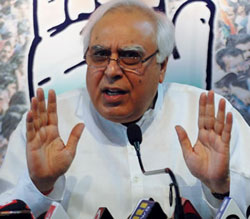 India’s Human Resource Development Minister Kapil Sibal has announced a new policy soon to attract more overseas students to the country’s premier educational institutions, the Indian Institutes of Technology (IIT). Kapli presented the idea at at a conference on higher education/technical education in New Delhi on 24 July 2009. It was the first meeting of the IIT Council, as it is called, discussing a multi-pronged policy, including introducing scholarships and reducing of fee, to attract more foreign students at post-graduate level in the institutes. The council also decided on allowing the prestigious IITs to create extra seats for foreign students at post graduate level to ensure that youths from other countries take part in research and development in a big way. At present, foreign students have to pay a much higher amount of money than their Indian counterparts as fee. The number of foreign students are very less in the IITs, mainly because of the high fees. More information in an article from The Hindu.
India’s Human Resource Development Minister Kapil Sibal has announced a new policy soon to attract more overseas students to the country’s premier educational institutions, the Indian Institutes of Technology (IIT). Kapli presented the idea at at a conference on higher education/technical education in New Delhi on 24 July 2009. It was the first meeting of the IIT Council, as it is called, discussing a multi-pronged policy, including introducing scholarships and reducing of fee, to attract more foreign students at post-graduate level in the institutes. The council also decided on allowing the prestigious IITs to create extra seats for foreign students at post graduate level to ensure that youths from other countries take part in research and development in a big way. At present, foreign students have to pay a much higher amount of money than their Indian counterparts as fee. The number of foreign students are very less in the IITs, mainly because of the high fees. More information in an article from The Hindu.
• Information about South Asia related
education at Swedish and Nordic universities
See SASNET’s page, http://www.sasnet.lu.se/education.html
• Bhopal and Bangladesh in focus at Human Rights conference in Stockholm
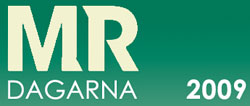 The largest Nordic forum for Human Rights, MR-dagarna, will be held in Stockholm 16–17 November 2007. The 2009 Human Rights Forum, is organised by eight non-governmental organisations – DemokratiAkademin, Diakonia, Fonden för mänskliga rättigheter, Föreningen Ordfront, Sensus studieförbund, Svenska Helsingforskommittén, Swedish Church, and Swedish Red Cross, plus two academic institutions: Raoul Wallenberg Institute, Lund University, and Stockholm School of Theology (Teologiska Högskolan). The theme for the 2009 event will be ”Human Rights and Climate Crisis”. Among the large number of programmes, one seminar focuses specifically on India and another seminar on Bangladesh.
The largest Nordic forum for Human Rights, MR-dagarna, will be held in Stockholm 16–17 November 2007. The 2009 Human Rights Forum, is organised by eight non-governmental organisations – DemokratiAkademin, Diakonia, Fonden för mänskliga rättigheter, Föreningen Ordfront, Sensus studieförbund, Svenska Helsingforskommittén, Swedish Church, and Swedish Red Cross, plus two academic institutions: Raoul Wallenberg Institute, Lund University, and Stockholm School of Theology (Teologiska Högskolan). The theme for the 2009 event will be ”Human Rights and Climate Crisis”. Among the large number of programmes, one seminar focuses specifically on India and another seminar on Bangladesh.
Amnesty International organises a seminar on Monday 16 November, 15.00–16.30, entitled ”Bhopal and Corporate Accountability – 25 years of Fighting for Justice”, with representatives from the International Campaign for Justice in Bhopal (ICJB). Jonas Ebbesson, Professor of Environmental Law, Stockholm University, and Director of Stockholm Environmental Law and Policy Centre, also participates in the seminar along with Lise Bergh, General Secretary, Amnesty International Sweden.
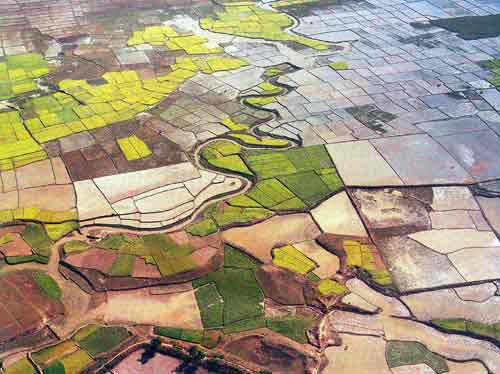 On the following day, Tuesday 16 November, 13.00–14.00, a seminar entitled ”Bangladesh: Adoption to Climate Change, with Focus on Gender Equality”, will be held. It focuses on the fact that in many poor households in Bangladesh the women are the most exposed and they are not of primary concern. During floods they receive little information and lack both power and resources to affect their situation. When croplands are destroyed by salt the men travel in the search of new jobs, while the women remain unable to supply themselves and their children. Nevertheless, reconstruction and adaptation to the climate changes take place in the shadow of the increasingly devastating floods. This seminar is organised by Diakonia, and features Sultana Begum, the organisation’s regional Gender Advisor for Asia; and Tushar Daring, Head of the Social Association for Rural Advancement, SARA.
On the following day, Tuesday 16 November, 13.00–14.00, a seminar entitled ”Bangladesh: Adoption to Climate Change, with Focus on Gender Equality”, will be held. It focuses on the fact that in many poor households in Bangladesh the women are the most exposed and they are not of primary concern. During floods they receive little information and lack both power and resources to affect their situation. When croplands are destroyed by salt the men travel in the search of new jobs, while the women remain unable to supply themselves and their children. Nevertheless, reconstruction and adaptation to the climate changes take place in the shadow of the increasingly devastating floods. This seminar is organised by Diakonia, and features Sultana Begum, the organisation’s regional Gender Advisor for Asia; and Tushar Daring, Head of the Social Association for Rural Advancement, SARA.
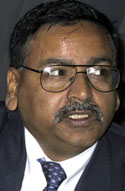 Saleemul Huq from Bangladesh, chief scientist at the International Institute for Environment and Development (IIED) in London, was supposed to be one of the key speakers at MR-dagarna 2009, but unfortunately his visit has been cancelled.
Venue: Stockholmsmässan, Mässvägen 1, Älvsjö.
Saleemul Huq from Bangladesh, chief scientist at the International Institute for Environment and Development (IIED) in London, was supposed to be one of the key speakers at MR-dagarna 2009, but unfortunately his visit has been cancelled.
Venue: Stockholmsmässan, Mässvägen 1, Älvsjö.
More information about the 2009 Human Rights Forum in Stockholm.
• Copenhagen conference on Globalization and Economic Nationalism in Asia
 The Asia Research Centre at Copenhagen Business School (CBS) organises a conference on ”Globalization and Economic Nationalism in Asia” on 3–4 December 2009. The conference addresses the significance of economic nationalism in Asia in an era of changing global capitalism. The central questions are how economic nationalism has changed in the last 30 years in Asia and where and how it might be heading. Professor Ajit Singh, Cambridge University, is one of the keynote speakers, and he will talk about ”Globalisation and Economic Nationalism: An Asian Perspective”.
Venue for the conference:
Asia Research Centre,
Copenhagen Business School,
Porcelænshaven 22, Frederiksberg. More information.
The Asia Research Centre at Copenhagen Business School (CBS) organises a conference on ”Globalization and Economic Nationalism in Asia” on 3–4 December 2009. The conference addresses the significance of economic nationalism in Asia in an era of changing global capitalism. The central questions are how economic nationalism has changed in the last 30 years in Asia and where and how it might be heading. Professor Ajit Singh, Cambridge University, is one of the keynote speakers, and he will talk about ”Globalisation and Economic Nationalism: An Asian Perspective”.
Venue for the conference:
Asia Research Centre,
Copenhagen Business School,
Porcelænshaven 22, Frederiksberg. More information.
A number of India related papers will be presented during the conference:
– Surajit Mazumda, Institute for Studies in Industrial Development, New Delhi, presents a paper entitled ”Big Business and Economic Nationalism in India”;
– Vishwas H. Devaiah, University of Liverpool, presents a paper entitled ”Economic Nationalism in the wake of Globalisation: A Case of protecting domestic pharmaceutical industry in India”;
– Arabinda Acharya, School of International Studies, Nanyang Technological University, Singapore, presents a paper entitled ”Economic Nationalism, Public policy and International Financial Institutions: A case study of India”; and
– Jason Jackson, Department of Urban Studies and Planning, Massachusetts Institute of Technology, presents a paper entitled ”The rules are rigged: How nationalist institutions mediate the tension between cooperation and competition in Indian joint ventures”.
• Uppsala workshop for PhD students on Integrated Science and Career Possibilities
 A workshop for PhD students on Integrated Science and Career Possibilities will be arranged at the Swedish University of Agricultural Sciences (SLU) in Uppsala, 10–11 December 2009. It is organised by the recently established Swedish Research Network for Sustainable Agriculture and Forestry for Development
(Agri4D), funded by the Swedish International Development Cooperation Agency, Sida (more information). The first day of the workshop will introduce some integrated science concepts and
provide examples, both Swedish and international, to illustrate their value. During the second day, they will then be able to present their
own research to other students. Participants must register as soon as possible but not later than 30 November 2009. More information.
A workshop for PhD students on Integrated Science and Career Possibilities will be arranged at the Swedish University of Agricultural Sciences (SLU) in Uppsala, 10–11 December 2009. It is organised by the recently established Swedish Research Network for Sustainable Agriculture and Forestry for Development
(Agri4D), funded by the Swedish International Development Cooperation Agency, Sida (more information). The first day of the workshop will introduce some integrated science concepts and
provide examples, both Swedish and international, to illustrate their value. During the second day, they will then be able to present their
own research to other students. Participants must register as soon as possible but not later than 30 November 2009. More information.
• The 2nd EuroIndia ICT Co-operation International Event
 The 2nd EuroIndia ICT Co-operation International Event will be held in New Delhi, India, 10–11 December 2009. The conference is supported by the European Commission and hosted by the International Management Institute (IMI) in New Delhi. The conference is co-chaired by Prof. Mogens Kühn Pedersen, and and Dr. Sudhanshu Rai, both from Copenhagen Business School (CBS) in Denmark); Prof. Krithi Ramamritham from the Indian Institute of Technology, Bombay (IITB); and Dr. C.S. Venkat Ratnam, and Prof. Ramesh Bahl from IMI. After having spent approximately two years fulfilling the objectives of the Euro-India ICT Innovation Mapping project, The Euro-India ICT-Cooperation consortium is preparing for the final conference where the aim is to share findings and insights on Indian ICT innovative story with industry, academia and government. The conference will focus on ICT innovation in and between Europe & India and emerging economies at large.
The 2nd EuroIndia ICT Co-operation International Event will be held in New Delhi, India, 10–11 December 2009. The conference is supported by the European Commission and hosted by the International Management Institute (IMI) in New Delhi. The conference is co-chaired by Prof. Mogens Kühn Pedersen, and and Dr. Sudhanshu Rai, both from Copenhagen Business School (CBS) in Denmark); Prof. Krithi Ramamritham from the Indian Institute of Technology, Bombay (IITB); and Dr. C.S. Venkat Ratnam, and Prof. Ramesh Bahl from IMI. After having spent approximately two years fulfilling the objectives of the Euro-India ICT Innovation Mapping project, The Euro-India ICT-Cooperation consortium is preparing for the final conference where the aim is to share findings and insights on Indian ICT innovative story with industry, academia and government. The conference will focus on ICT innovation in and between Europe & India and emerging economies at large.
• Fourth International SASNET Fermented Foods conference to be held in Anand
The Fourth International Conference on
Fermented Foods, Health Status
and Social Well-being will be held at Anand Agricultural University in Gujarat, India, on 11–12 December 2009. The conference is organised by the
Swedish South Asian Network on Fermented Foods (SASNET Fermented Foods), in association with Anand
Agricultural
University,
the National Dairy
Development Board in
Anand, and Lund University,
Sweden. SASNET Fermented Foods was established with SASNET support in 2002 (more information). Last date for submissions of abstracts is 11 November 2009. Full information about the 2009 conference.
• Varanasi conference on
Energy, Environment & Disaster For Sustainable Development
An International Conference on ”Strategic Management of
Energy, Environment & Disaster For Sustainable Development” (ICONSMEEDS) will be held in Varanasi, India, 11–15 January 2010. It is organised by the Dept. of
Geography, and the
Faculty of Management Studies at
Banaras Hindu University (BHU), in collaboration with Global Strategic Management Inc., based in Beverly Hills,
Michigan, USA. The conference will bring together the leading environmentalists, practitioners, academicians,
policy makers, economists from across the world for idea and experience sharing regarding
the developmental sustainability on one hand and the conservation and protection of
environment and energy on the other hand. More information.
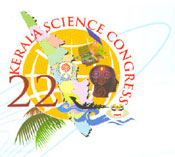 • 22nd Kerala Science Congress in Thrissur
• 22nd Kerala Science Congress in Thrissur
The 22nd Kerala Science Congress will be held at the Kerala Forest Research Institute in Peechi, Thrissur, 28–31 January 2010. It is organised by the Kerala State Council forScience, Technology and Environment (KSCSTE), an umbrella organization of the research establishments in the South Indian state of Kerala. The 2010 Kerala Science Congress has the focal theme “Intellectual Property Rights and Development: A National Perspective”. Researchers, technologists, teachers, industrialists, environmentalists, engineers, planners, policymakers, social workers and research students in Science, Technology and Environmental Sciences are invited to participate. Deadline for registration and submission of abstracts is 30 November 2009. More information.
• International Seminar on Buddhism and Globalization in New Delhi
The International Seminar on Buddhism and Globalization (ISBG-2010) will be held in New Delhi, India, on 17–19 February 2010. It is organized by the Dept. of Buddhist Studies, University of Delhi, with an aim to bring together researchers, faculty, and scholars, students to exchange and share their experiences, new ideas, and research results about all aspects of Buddhism and Globalization, and discuss the practical challenges encountered and the solutions adopted. Venue: Old Convocation Hall, Faculty of Arts, University of Delhi. Unpublished research papers are invited
before 16 December 2009.
• Chandigarh conference on Punjabis in a Transnational World
An International Conference on ”Migrations, Mobility and Multiple Affiliations:
Punjabis in a Transnational World” will be held in , India, 25–26 February 2010. The conference is jointly organised by the
Centre for Development Studies (CDS) in Thiruvananthapuram, and the
Centre for Research in Rural and Industrial Development (CRRID), Chandigarh. Senior and young scholars working on Punjabi migration are invited to contribute papers to the conference. Interested scholars should have sent abstracts of their papers before 30 October 2009. Selected scholars will have to submit the full paper by 15 January 2010. CDS will bear the expenses for travel and local hospitality of the selected participants. Full information.
• Mumbai conference on Modernity, Identity and Resistance in South Asia
The Dept. of Sociology at
the University of Mumbai, India, organises a South Asia conference on ”Modernity, Identity and Resistance in South Asia: Negotiating Subjectivity amidst changing Solidarities”, on 11–13 March 2010. The conference will invite paper presentation and panel discussion on the following main themes:
Modernity and its critique in South Asia; Changing Solidarities, Emerging Identities; The place of Hierarchy within South Asian modernity; Nations and Regions; Majoritarianism and the minorities; Gender as the terrain and trope for modernity; and Resisting/Reinventing Modernity. Research papers are invited from scholars both within India, other regions of South Asia as well as International Scholars working on South Asia. Deadline for submission of abstracts is 1 December 2009. Venue:
J. P. Naik Bhavan, University of Mumbai Kalina Campus,
Vidhyanagri Santa Cruz, East Mumbai. More information.
• Wayanad conference on Marginalised Tribes
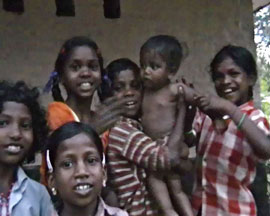 An International Conference on Marginalised Tribes, the Paniya Conference as it is called, wil be held in Wayanad, Kerala, India, 13–15 March 2010. The conference is organised by the Centre for Development Studies (CDS) in Thiruvananthapuram, and Universite de Montreal, Canada. The Conference seeks to create a unique opportunity to discuss, and exchange ideas on the issues of development of marginalized tribal groups, such as Paniya of Kerala by bringing together academicians, activists, administrators, and political leaders concerned with the development of marginalized tribal groups in India.
Poverty, landlessness, and high school drop-out is endemic among the marginalized Paniya, numerically the largest accounting for about 22% of the tribal population of Kerala. Poor health and lack of access to care is also widespread among them. The largest tribal group has not been able to raise its voice against such deprivations in Kerala and the situation is not very different among such marginalized tribes elsewhere in India. This kind of marginalization is different from that of particularly vulnerable tribal groups who are isolated and small in numbers. There is an urgent need to sensitize the public, opinion leaders, and decision makers to the marginalization of the larger tribal groups.
Abstracts should be submitted before 15 November 2009. More information.
An International Conference on Marginalised Tribes, the Paniya Conference as it is called, wil be held in Wayanad, Kerala, India, 13–15 March 2010. The conference is organised by the Centre for Development Studies (CDS) in Thiruvananthapuram, and Universite de Montreal, Canada. The Conference seeks to create a unique opportunity to discuss, and exchange ideas on the issues of development of marginalized tribal groups, such as Paniya of Kerala by bringing together academicians, activists, administrators, and political leaders concerned with the development of marginalized tribal groups in India.
Poverty, landlessness, and high school drop-out is endemic among the marginalized Paniya, numerically the largest accounting for about 22% of the tribal population of Kerala. Poor health and lack of access to care is also widespread among them. The largest tribal group has not been able to raise its voice against such deprivations in Kerala and the situation is not very different among such marginalized tribes elsewhere in India. This kind of marginalization is different from that of particularly vulnerable tribal groups who are isolated and small in numbers. There is an urgent need to sensitize the public, opinion leaders, and decision makers to the marginalization of the larger tribal groups.
Abstracts should be submitted before 15 November 2009. More information.
• 8th International Conference of Labour History in New Delhi
The 8th International Conference of Labour History will be held in New Delhi, India, 18–20 March 2010. It will be organised by the Association of Indian Labour Historians (AILH) in collaboration
with the V.V. Giri National Labour Institute (VVGNLI). Papers for presentation are now invited from
historians, social scientists, labour activists and organizations. The conference will be focused around two main rubrics:
1. Spatial histories of labour (including labouring lives and the production of urban space; infra-structure, public works and the creation of new spatial grids; and movement and migration).
2. Linked histories (including labouring lives and dalit histories; ecological regimes and labouring lives; and masculinity femininity and labouring identities.
Panel and paper abstracts should be submitted before 15 November 2009. More information.
• BASAS 2010 conference focuses on Landscapes of the Imagination and South Asia
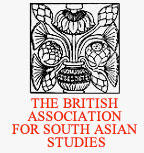 The British Association for South Asian Studies (BASAS) holds its Annual Conference 2010 at the University of Warwick, UK, 29–31 March 2010. The convenors especially welcome submissions on the theme 'Landscapes of the Imagination and South Asia'. The keynote speaker will be Professor Catherine Hall from the University College London. She will speak on the theme: ”Macaulay: writing history, writing Inda”. Please note that you will need to join BASAS, or renew your BASAS membership, in order to attend the conference. Details on how to become a BASAS member or how to renew your BASAS membership are available online at http://www.basas.org.uk/payment.htm. Deadline for panel/paper proposals is Friday 18 December 2009. More information on BASAS 2010 conference.
The British Association for South Asian Studies (BASAS) holds its Annual Conference 2010 at the University of Warwick, UK, 29–31 March 2010. The convenors especially welcome submissions on the theme 'Landscapes of the Imagination and South Asia'. The keynote speaker will be Professor Catherine Hall from the University College London. She will speak on the theme: ”Macaulay: writing history, writing Inda”. Please note that you will need to join BASAS, or renew your BASAS membership, in order to attend the conference. Details on how to become a BASAS member or how to renew your BASAS membership are available online at http://www.basas.org.uk/payment.htm. Deadline for panel/paper proposals is Friday 18 December 2009. More information on BASAS 2010 conference.
• Cergy-Pontoise colloquium on Changing Images of India and Africa
A colloquium on ”Changing Images of India and Africa” will be held at the University of Cergy-Pontoise, 30 km west of Paris, France, 3–4 June 2010. The colloquium is organised by two of the university’s research centres , CICC (Civilisations et identités culturelles comparées des sociétés), and SARI (Société d’Activité et de Recherche sur les mondes Indiens). The purpose of this SARI/CICC colloquium is to move
beyond the colonial rhetoric and decidedly look at contemporary India and
Africa in order to create, first of all, a South-South dynamics of interaction. Paper
proposals might contrast earlier images of India/Africa with current images, and study the influences that brought about the change. Deadline for submission of papers is 15 February 2010.
The
proposals could be in English or French. However, for the publication of the
proceedings, you would be required to contribute your text in French. More information.
• 20th European Association for South Asian Archaeology and Art conference
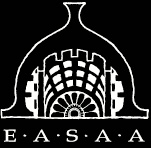 The European Association for South Asian Archaeology and Art (EASAA) holds its 20th conference in Vienna, Austria, 4–10 July 2010. The conference will consist of two simultaneous sessions, one focusing on pre and proto-historic archaeology and one on historic archaeology and art history. Contributions should be drawn from current and unpublished research dealing with the archaeology and art history of South Asia. Topics from neighboring regions – i.e. Iran, the Tibetan culture zone, or Central Asia will also be considered when they illuminate problems in South Asian archaeology or art history. Abstracts should be submitted before 30 November 2009. Venue: Campus (AAKH), Spitalgasse 2-4, University of Vienna. More information.
The European Association for South Asian Archaeology and Art (EASAA) holds its 20th conference in Vienna, Austria, 4–10 July 2010. The conference will consist of two simultaneous sessions, one focusing on pre and proto-historic archaeology and one on historic archaeology and art history. Contributions should be drawn from current and unpublished research dealing with the archaeology and art history of South Asia. Topics from neighboring regions – i.e. Iran, the Tibetan culture zone, or Central Asia will also be considered when they illuminate problems in South Asian archaeology or art history. Abstracts should be submitted before 30 November 2009. Venue: Campus (AAKH), Spitalgasse 2-4, University of Vienna. More information.
• Indian conveners at 17th World Congress of Sociology in Gothenburg
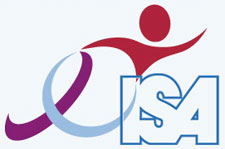 Several Indian researchers convene sessions/workshops during the 17th International Sociological Association (ISA) World Congress of Sociology, to be held in Gothenburg, Sweden, 11–17 July 2010. Full information about the XVII World Congress.
Several Indian researchers convene sessions/workshops during the 17th International Sociological Association (ISA) World Congress of Sociology, to be held in Gothenburg, Sweden, 11–17 July 2010. Full information about the XVII World Congress.
Prof. Anup Das from Utkal University in Bhubaneshwar, Orissa, will lead a workshop on ”Solidarity and Social Economy” (session 4) within the framework of ISA’s Research Committee No. 10 (RC 10). Siddharamesh L. Hiremath, Gulbarga University, convenes another session in RC 10, a session on ”Organizations on the move: Participation, work culture and quality of work life”. More information about RC 10.
•  21st European Conference on
Modern South Asian Studies in Bonn
21st European Conference on
Modern South Asian Studies in Bonn
The 21st European Conference on
Modern South Asian Studies (ECMSAS) will be held at the University of Bonn, Germany, 26–29 July 2010.
Scholars and students from any field of research related
to the South Asian region are invited to participate in
conference.
For many years, the ECMSAS has been an important platform
and indicator of contemporary trends in South Asian
studies worldwide. The 21st ECMSAS will host 44 panels,
covering a broad range of research subjects. Contributions
to one of the panels during Europe’s primary event in
South Asian research next year are appreciated!
Anyone interested to present her or his research to an
academic public should contact one of the panel conveners
as soon as possible. We are planning to put the complete
list of presentations and abstracts on the net towards the
end of 2009. Please check the list of panels to find out, where your specialization
might fit into. Young researchers are particularly invited
to join the conference and present their findings to the
academic public. Panels are completely independent, and
organizers and the steering committee members do not
intervene on this level. Hosting agency of the 21st
ECMSAS is the Institute for Asian and Oriental Studies,
University of Bonn. The university’s chair of indology,
the first of its kind in Germany, was established in the
year of the foundation of the university, in 1818.
Early bird register special offer is available through
online registration and advance card payment. Full information on the conference web site.
Two of the panels are led by Swedish researchers. More information about the ECMSAS conference and interesting panels at the 2010 conference.
• Other conferences connected to South Asian
studies arranged all over the World
See SASNET’s page, http://www.sasnet.lu.se/conferences.html#conf
Important lectures and seminars in Scandinavia
• The Swallows celebrate 50 years anniversary with seminar series
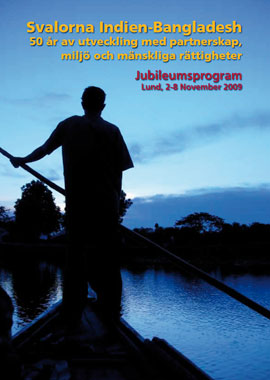 The Swedish non-governmental organisation Svalorna Indien-Bangladesh (The Swallows India Bangladesh section) celebrates its 50th anniversary during the week 2–8 November 2009. Svalorna Indien-Bangladesh, headquartered at Lund, started its activities in 1959 and is today working mainly with local organisations in Tamil Nadu (India) and in Rajshahi district (Bangladesh). The organisation has one representative, Ms. Eva Hägerstrand, in SASNET’s board, and in 2005 SASNET’s former director, Prof. Staffan Lindberg, visited the project area in Thanapara, Bangladesh (read his report from the visit).
The Swedish non-governmental organisation Svalorna Indien-Bangladesh (The Swallows India Bangladesh section) celebrates its 50th anniversary during the week 2–8 November 2009. Svalorna Indien-Bangladesh, headquartered at Lund, started its activities in 1959 and is today working mainly with local organisations in Tamil Nadu (India) and in Rajshahi district (Bangladesh). The organisation has one representative, Ms. Eva Hägerstrand, in SASNET’s board, and in 2005 SASNET’s former director, Prof. Staffan Lindberg, visited the project area in Thanapara, Bangladesh (read his report from the visit).
The theme for the jubilee week has been ”50 years of development with partnership, environment, and human rights”. It was inaugurated on Monday 2 November by the organisation’s new Team Leader, Dr. Monica Erwér, previously researcher at the Division of Peace and Development Studies (PADRIGU), School of Global Studies, Gothenburg University.
Several seminars have been held during the week.
Bosse Kramsjö talked about the development in Bangladesh, a country in which he has worked for many years. Camilla Ståhlberg discussed whether organic farming will be able to reduce poverty, with Oswald Quintal and Poppy John Xavier from the organisation Kudumbam in Tamil Nadu, and Raihan och Guinea Ali from Thanapara Swallows Development Society in Bangladesh.
Other lecturers include Birgitta Göranson-Iliste, Ragnar Hallgren, and Maud Johansson.
See the full programme (as a pdf-file).
•
Aman Agarwal lectures at BTH and KTH
 Professor Aman Agarwal from the Indian Institute of Finance in Delhi will give an inspiration seminar at Blekinge Institute of Technology in Ronneby on Monday 9 November 2009, 11.00–12.15. Aman Agarwal is currently heading as Professor of Finance and Vice-Chairman at the Indian Institute of Finance. His presentation is entitled ”Technological Innovation and Climate Change During and Beyond the Financial Crisis – the Indian Experiment”.
The seminar will be in English and is open to the public. Venue: Tellus, Soft Center, Ronneby.
Professor Aman Agarwal from the Indian Institute of Finance in Delhi will give an inspiration seminar at Blekinge Institute of Technology in Ronneby on Monday 9 November 2009, 11.00–12.15. Aman Agarwal is currently heading as Professor of Finance and Vice-Chairman at the Indian Institute of Finance. His presentation is entitled ”Technological Innovation and Climate Change During and Beyond the Financial Crisis – the Indian Experiment”.
The seminar will be in English and is open to the public. Venue: Tellus, Soft Center, Ronneby.
Three days later, on Thursday 12 November 2009, 10–12, Prof. Agarwal will also hold a lunch seminar at the Royal Institute of Technology (KTH) in Stockholm. He has been invited by the Centre for Banking and Finance at KTH, to deliver a speech on ”India – the economy and financial markets today in the future”. Venue: Seminar room, 1st floor, Drottning Kristinas väg 30, Stockholm.
• Oslo seminar with Syeda Abida Hussain
The Norwegian Institute of International Affairs organises a seminar with Mrs. Syeda Abida Hussain in Oslo on Tuesday 11 November 2009, 11.00–12.00. She will talk about ”Crisis, Fundamentalism and Leadership Struggles: Can Pakistan be governed?” Syeda Abida Hussain was elected to National Assembly from Jhang, Punjab. She is a prominent member of Pakistan Peoples Party. Syeda Abida Hussain has been Pakistan's Minister for Education, Science & Technology, Minister for Food and Agriculture, the Minister for Population Welfare, and the Minister for Environment and Urban Affairs.
NUPI director Jan Egeland will be the moderator of the seminar. Venue:
NUPI, C.J. Hambros plass 2 D, Oslo. More information.
• CPAS lecture on the Role of Central Asia in the Discovery of Global Warming
 Philippe Forêt,
Visiting Scholar, Fellow of the China Policy Institute, University of Nottingham, UK, holds an open lecture on ”The Role of Central Asia in the Discovery of Global Warming” at Stockholm University on Wednesday 11 November 2009, 15.00–17.00. Dr. Forêt is currently a visiting scholar within the Stockholm International Program for Central Asian Studies. At Stockholm University, Dr. Fôret will work mostly on the book ”The Last Spy of the Raj. Mapping Climate Change in the Deserts of Asia”, London: IB Tauris (forthcoming) about early 20th-century topographical expeditions to Iran, Tibet, and Xinjiang. Most of the material needed for this project is to be found in the Hedin collections of the Swedish National Archives. The seminar is one of the regular Wednesday lectures arranged by the Centre for Pacific Asian Studies (CPAS), at Stockholm University. Venue for the lecture: Room 32, Dept. of Mathematics (next to Dept. of Oriental Languages), Kräftriket 4 A (earlier Roslagsvägen 101), Stockholm.
Philippe Forêt,
Visiting Scholar, Fellow of the China Policy Institute, University of Nottingham, UK, holds an open lecture on ”The Role of Central Asia in the Discovery of Global Warming” at Stockholm University on Wednesday 11 November 2009, 15.00–17.00. Dr. Forêt is currently a visiting scholar within the Stockholm International Program for Central Asian Studies. At Stockholm University, Dr. Fôret will work mostly on the book ”The Last Spy of the Raj. Mapping Climate Change in the Deserts of Asia”, London: IB Tauris (forthcoming) about early 20th-century topographical expeditions to Iran, Tibet, and Xinjiang. Most of the material needed for this project is to be found in the Hedin collections of the Swedish National Archives. The seminar is one of the regular Wednesday lectures arranged by the Centre for Pacific Asian Studies (CPAS), at Stockholm University. Venue for the lecture: Room 32, Dept. of Mathematics (next to Dept. of Oriental Languages), Kräftriket 4 A (earlier Roslagsvägen 101), Stockholm.
More information on Dr. Forêt.
• Copenhagen seminar on Indian Television, globalization and popular discourses of change
Dr. Abhijit Roy from the Dept. of Film Studies, Jadavpur University, Kolkata, India, will hold an open lecture entitled ”Betty comes to India: Television, globalization and popular discourses of ‘change” in Copenhagen on Thursday 12 November 2009, 10.00–12.00. He has been invited to Denmark for the film festival CPH:DOX 2009, but Dr. Roy will also also visit the Centre of Global South Asian Studies, Dept. for Cross-Cultural and Regional Studies, University of Copenhagen, organising the seminar in collaboration with the Asian Dynamics Initiative (ADI). In his presentation, Dr. Roy tries to map the vision of the ‘modern' in Indian soap opera in an effort to complicate the popular binary of tradition/modernity and to broadly draw attention to the way the post-colonial negotiates the Global. He focuses on a serial, called Jassi Jaisi Koi Nahi. Venue: Nordic Institute of Asian Studies (NIAS), Leifsgade 33, 3rd floor, Copenhagen. More information.
• Gothenburg workshop on non-materialist values
in the public spaces
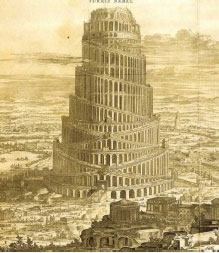 A public workshop on ”Responsibility for
non-materialist values
in the public spaces:
Why, Where and by whom?” is organised at the Museum of World Culture in
Gothenburg on Monday 16 November 2009, 13.00–18.00.
It is co-organised by the Center for Public Sector Research (CEFOS) at the University of Gothenburg, and the experimental venue
Atalante. The invited speakers include Dr. Shanthikumar Hettiarachchi, lecturer in Religion and Conflict at St. Philip’s
Centre for Study and Engagement, Leicester, UK. He comes from Sri Lanka and has a special interest in Buddhist-Christian encounter. His research interests are in Diaspora communities, their religious
affiliations in UK, Europe, Australia and their social adjustment processes. He focuses on
radicalisation of religious faith, land, history and notions of chosenness as political tools
to redress and quest for identity. He has published widely on related topics. All are welcome, but participants should register before November 11th to Klas Grinell, Curator of contemporary global issues at the Museum of World Culture. The workshop is sponsored by the Royal Swedish Academy of Letters, History and Antiquities (Vitterhetsakademin). More information.
A public workshop on ”Responsibility for
non-materialist values
in the public spaces:
Why, Where and by whom?” is organised at the Museum of World Culture in
Gothenburg on Monday 16 November 2009, 13.00–18.00.
It is co-organised by the Center for Public Sector Research (CEFOS) at the University of Gothenburg, and the experimental venue
Atalante. The invited speakers include Dr. Shanthikumar Hettiarachchi, lecturer in Religion and Conflict at St. Philip’s
Centre for Study and Engagement, Leicester, UK. He comes from Sri Lanka and has a special interest in Buddhist-Christian encounter. His research interests are in Diaspora communities, their religious
affiliations in UK, Europe, Australia and their social adjustment processes. He focuses on
radicalisation of religious faith, land, history and notions of chosenness as political tools
to redress and quest for identity. He has published widely on related topics. All are welcome, but participants should register before November 11th to Klas Grinell, Curator of contemporary global issues at the Museum of World Culture. The workshop is sponsored by the Royal Swedish Academy of Letters, History and Antiquities (Vitterhetsakademin). More information.
• Kunal Sen lectures on Economic Growth in Indian States
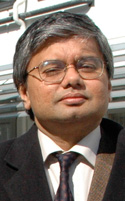 Prof. Kunal Sen from the Institute of Development Policy and Management (IDPM), University of Manchester, UK, will hold a guest lecture entitled ”State Business Relations and Economic Growth in Indian States” in Copenhagen on Monday 23 November 2009, 14.00–15.30. The seminar is organised by the Asia Research Centre at Copenhagen Business School (BCS). Prof. Sen will present a paper examining the effect of effective state-business relations on economic growth across Indian states over the period 1985–2006. He shows that effective state-business relations contribute significantly to economic growth – Indian states which have shown improvements in state-business relations have witnessed higher economic growth, independent of other determinants of economic growth. Venue: CBS, Room 109, Porcelænshaven 16A, Frederiksberg, Copenhagen. More information.
Prof. Kunal Sen from the Institute of Development Policy and Management (IDPM), University of Manchester, UK, will hold a guest lecture entitled ”State Business Relations and Economic Growth in Indian States” in Copenhagen on Monday 23 November 2009, 14.00–15.30. The seminar is organised by the Asia Research Centre at Copenhagen Business School (BCS). Prof. Sen will present a paper examining the effect of effective state-business relations on economic growth across Indian states over the period 1985–2006. He shows that effective state-business relations contribute significantly to economic growth – Indian states which have shown improvements in state-business relations have witnessed higher economic growth, independent of other determinants of economic growth. Venue: CBS, Room 109, Porcelænshaven 16A, Frederiksberg, Copenhagen. More information.
• ACE lecture on Youth, sexuality and popular culture in New Delhi
PhD candidate Elizabeth Williams Ørberg from the Dept. of Anthropology, Archaeology and Linguistics,
Aarhus University, Denmark, holds a guest lecture at Lund University on Monday 30 November 2009, 10.00–12.00. Ms. Williams Ørberg will talk about “Youth, sexuality and popular culture in New Delhi”. The seminar is organised by Lund University’s Centre for East and South-East Asian Studies (ACE). During the period 2005–07, Elizabeth Williams-Ørberg was a student on the Masters Programme in Asian Studies at ACE, and there she wrote a Master thesis on a similar topic, namely ”The ‘Paradox’ of Being Young in New Delhi.
Urban Middle Class Youth Negotiations with Popular Indian Film” (the thesis is published as a working paper on the Internet, go for it). Venue: ACE, Java hall, ground floor, Scheelevägen 15, Lund.
• Copenhagen workshop on Reimagining Pakistan
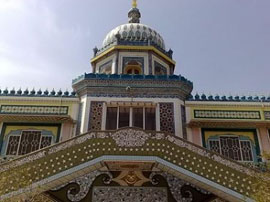 An Asian Dynamics Initiative (ADI)/Centre for Global South Asian Studies workshop on ‘Reimagining Pakistan’ will be held in Coenhagen on Wednesday 2 December 2009, 09.30–17.00. In the popular imaginary, Pakistan seldom appears outside the framework of War on Terror – it has become the ‘theatre of war' where ideological and actual battles are played out in everyday life. The very name ‘Pakistan' is often no longer mentioned on its own, it is firmly hyphenated with Afghanistan: Af-Pak, an unbounded chaotic space defined by excessive violence and unending turmoil. It is, as if, no histories, geographies, cultural identities of this space existed prior to its global debut as a source of threat. The workshop intends to examine this popular though ahistorical discourse that, at once, limits our understanding and forecloses any possibility of seeking alternative visions of this region.
An Asian Dynamics Initiative (ADI)/Centre for Global South Asian Studies workshop on ‘Reimagining Pakistan’ will be held in Coenhagen on Wednesday 2 December 2009, 09.30–17.00. In the popular imaginary, Pakistan seldom appears outside the framework of War on Terror – it has become the ‘theatre of war' where ideological and actual battles are played out in everyday life. The very name ‘Pakistan' is often no longer mentioned on its own, it is firmly hyphenated with Afghanistan: Af-Pak, an unbounded chaotic space defined by excessive violence and unending turmoil. It is, as if, no histories, geographies, cultural identities of this space existed prior to its global debut as a source of threat. The workshop intends to examine this popular though ahistorical discourse that, at once, limits our understanding and forecloses any possibility of seeking alternative visions of this region. 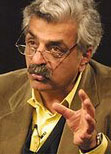 The aim is to bring together ideas that are not necessarily bound to the imperatives of terror/security, and in doing so address a vast social-political-cultural space that has remained unexplored so far. The intention is to gain a deeper understanding of Pakistan that goes beyond the rhetoric of ‘fundamentalism' and ‘terrorism' that currently defines it.
The aim is to bring together ideas that are not necessarily bound to the imperatives of terror/security, and in doing so address a vast social-political-cultural space that has remained unexplored so far. The intention is to gain a deeper understanding of Pakistan that goes beyond the rhetoric of ‘fundamentalism' and ‘terrorism' that currently defines it.
A public lecture by Tariq Ali (photo), historian, novelist and editor of New Left Review will follow the paper presentations. Other speakers include Dr. Markus Daeschel and Michael Jarlner. Deadline for the submission of abstracts is 6 November 2009.
The event is public, and participation is free. Registration is however required, it should be done by e-mail to Marie Yoshida at ADI.
More information about the workshop.
• Copenhagen seminars on Indian Astronomy
Professor Rajesh Kochhar, emeritus scientist at the Indian Institute of Science Education and Research in Mohali, Chandigarh, will hold three seminars during his visit in Copenhagen 7–9 December 2009. Kochhar is currently the vice-president of the International Astronomical Union Commission 41 on History of Astronomy. Earlier he was director of National Institute of Science, Technology and Development Studies (NISTADS), New Delhi; professor at Indian Institute of Astrophysics, Bangalore; and honorary professor of History of Science and Technology at National Institute of Advanced Studies, Bangalore. More information.
On Monday 7 December, 11.00–13.00, he will lecture at Copenhagen University on ”Ancient Astronomy. Evolution and Linkages”.
The focus will be to discuss how in the formative era, sacred texts influenced astronomy, how these texts themselves were modified under the influence of new scientific developments, and how mythology was upgraded to keep pace with science. Venue: Room 0.34, Indology, Artillerivej 86, Copenhagen.
On Tuesday 8 December, 14.15–16.00, he will give a lecture on ”Denmark, Colonial India and Protestant Missionaries”, at the National Museum, Festsalen, Ny Vestergade 10, Copenhagen. The seminar is organised by the Tranquebar Initiative, and Prof Kochhar will address the questions: Why did the missionaries fail to achieve large-scale conversions in India?, and how did their activities influence the educational scene in India?
Finally, on Wednesday 9 December, 14.15, Prof. Kochchar will lecture about ”Colonial use of science and the native responses” at the Niels Bohr Institute. During this seminar, he will address three issues: How were (modern) science and technology used as a colonial tool; How this rule was sought to be legitimized in the eyes of the natives as well as for home consumption; and How did the natives respond to the above two.
Venue: Niels Bohr Archive, Aud. A, Niels Bohr Institute, Blegdamsvej 17, Copenhagen.
Business and Politics
• European Development Days held in Stockholm
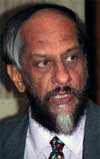 |
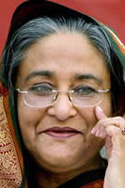 |
 |
| Prominent participants to the 4th European Development Days: Rajendra Pachauri, Hasina Wajed, and Mohammed Yunus. | ||
The fourth edition of the European Development Days (EDD) was held 22–24 October 2009 in Stockholm. EDD is an open forum for dialogue on democracy, environment and economy, and the theme of EDD 2009 was ”Citizenship and Development”. A large number of developmental organisations participated in the event. South Asia was well represented with speakers at the EDD 2009.
Dr. Rajendra Pachauri, Director General of the Energy and Resources Institute in New Delhi, and chair of the Intergovernmental Panel on Climate Change (IPCC) since 2002, was one of the most prominent participants; along with HE Ms. Hasina Wajed, Prime Minister of Bangladesh, and a member of the council of women world leaders (a network pushing for action on women's development); and Dr. Muhammad Yunus, founder and managing director of Grameen Bank and Nobel Peace Prize laureate.
 Another prominent South Asian participant was Prof. Sridhar Khatri (photo), Executive Director of the South Asia Centre for Policy Studies (SACEPS) in Kathmandu, Nepal. Formerly, he was executive director of the Regional Centre for Strategic Studies, Colombo (Sri Lanka), and executive director of the Institute of Foreign Affairs, Kathmandu. Prof. Khatri has also taught and worked in various capacities at Tribhuvan University, Kathmandu, for over 27 years.
Another prominent South Asian participant was Prof. Sridhar Khatri (photo), Executive Director of the South Asia Centre for Policy Studies (SACEPS) in Kathmandu, Nepal. Formerly, he was executive director of the Regional Centre for Strategic Studies, Colombo (Sri Lanka), and executive director of the Institute of Foreign Affairs, Kathmandu. Prof. Khatri has also taught and worked in various capacities at Tribhuvan University, Kathmandu, for over 27 years.
From Afghanistan came Mr. Abdul Salam Rahimy, Director and founder of SABA media organisation (providing information and analysis of central Afghan socio-political issues); and Mr. Mirwais Wardak, Programme Director of Cooperation for Peace and Unity (CPAU).
Finally, another speaker from Bangladesh was Nr. Muhammad Zamir, Vice President of the Centre for Democracy, Bangladesh, and a former career diplomat. He has published eight books dealing with human rights and international law, Islamic theology, Bengali adages, contemporary international issues and subjects of importance to Bangladesh and South Asia. Full information about the European Development Days.
• Swedish Prime Minister chairs the 2009 EU – India summit in New Delhi
 On Friday 6 November 2009, Swedish Prime Minister Fredrik Reinfeldt chairs the tenth EU-India summit to be held in New Delhi. Mr. Reinfeldt, representing the EU Presidency, will meet Indian Prime Minister Manmohan Singh. Swedish Minister for Foreign Affairs Carl Bildt and Minister for Trade Ewa Björling will also take part in the visit. The President of the European Commission José Manuel Barroso and Commissioners Benita Ferrero-Waldner and Catherine Ashton. Issues on the agenda include climate change, the global financial and economic crisis, discussions on relations between the EU and India, including trade, and a number of regional issues.
On Friday 6 November 2009, Swedish Prime Minister Fredrik Reinfeldt chairs the tenth EU-India summit to be held in New Delhi. Mr. Reinfeldt, representing the EU Presidency, will meet Indian Prime Minister Manmohan Singh. Swedish Minister for Foreign Affairs Carl Bildt and Minister for Trade Ewa Björling will also take part in the visit. The President of the European Commission José Manuel Barroso and Commissioners Benita Ferrero-Waldner and Catherine Ashton. Issues on the agenda include climate change, the global financial and economic crisis, discussions on relations between the EU and India, including trade, and a number of regional issues.
In connection with the summit, there will also be bilateral talks between Sweden and India. During his visit to India, Fredrik Reinfeldt’s preliminary schedule includes meetings with Sonia Gandhi, leader of the opposition Lal Krishna Advani, Vice President Mohammad Hamid Ansari and Dr Bindeshwar Pathak, recipient of the Stockholm Water Prize 2009. Reinfeldt will also meet Nobel Prize Laureate Rajendra Pachauri and students at TERI (The Energy and Resources Institute) in Delhi.
During her stay in India, the
Minister for Trade Ewa Björling will meet Indian Minister for Commerce and Industry Anand Sharma to discuss deeper cooperation between Sweden and India on trade and investment. The value of the balance of trade between Sweden and India doubled between 2000 and 2008 and Swedish exports to India have increased by a factor of six since 2000. In addition, more and more Swedish companies are setting up operations in India.
The Business Summit that will take place on the day of the Summit, 6 November, will also be the tenth of its kind. Dr Björling will give an opening address and take part in roundtable discussions with business leaders from India and the EU. Finally, on Saturday 7 November she will visit the Apollo Hospital, take part in a ISA roundtable discussion on biotechnology/life sciences, inaugurate the Swedish Trade Council's new offices in Delhi, and host a Sweden-India Nobel Memorial Dinner. More information.
• SIBC/BTH India Business seminar in Ronneby
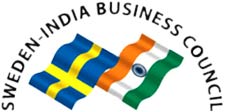 Sweden-India Business Council (SIBC) holds a business seminar in Ronneby on Tuesday 24 November 2009, 12.00–16.00. The seminar is co-organised by Blekinge Institute of Technology (BTH), and includes presentations by
Eva-Lisa Ahnström, project leader for the India project at BTH (more information);
Fredrik Hansson, CEO Roxtec; and
Stig Victorin, Senior Advisor,SIBC. Venue: Hörsal Tellus, Soft Center, Ronneby. More information about the seminar.
Sweden-India Business Council (SIBC) holds a business seminar in Ronneby on Tuesday 24 November 2009, 12.00–16.00. The seminar is co-organised by Blekinge Institute of Technology (BTH), and includes presentations by
Eva-Lisa Ahnström, project leader for the India project at BTH (more information);
Fredrik Hansson, CEO Roxtec; and
Stig Victorin, Senior Advisor,SIBC. Venue: Hörsal Tellus, Soft Center, Ronneby. More information about the seminar.
• IBC Euroforum seminar on successful business in India
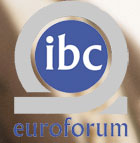 IBC Euroforum Sweden arranges a two-day seminar on Successful Business in India (Framgångsrika affärer i Indien) in Stockholm on 27–28 January 2010. The seminar is organised in collaboratio with Sweden-India Business Council (SIBC) and the Swedish Trade Council. Speakers include Robin Sukhia, Secretary General, SIBC; H.E. Mr. Balkrishna Shetty, Ambassador of India to Sweden; Fredrik Fexe, Secretary of Trade, Swedish Trade Council, New Delhi; Mats Agervi, Vice President, Business Management & Marketing, Business Unit Global Services, Ericsson; Renée Andersson, Indiska; Mitesh Chotai, CEO, Nefab England; and Gautam Bhattacharyya, Springtime.
IBC Euroforum Sweden arranges a two-day seminar on Successful Business in India (Framgångsrika affärer i Indien) in Stockholm on 27–28 January 2010. The seminar is organised in collaboratio with Sweden-India Business Council (SIBC) and the Swedish Trade Council. Speakers include Robin Sukhia, Secretary General, SIBC; H.E. Mr. Balkrishna Shetty, Ambassador of India to Sweden; Fredrik Fexe, Secretary of Trade, Swedish Trade Council, New Delhi; Mats Agervi, Vice President, Business Management & Marketing, Business Unit Global Services, Ericsson; Renée Andersson, Indiska; Mitesh Chotai, CEO, Nefab England; and Gautam Bhattacharyya, Springtime.
The two-day seminar will be followed by a separate one-day workshop, also organised by IBC Euroforum, on Friday 29 January 2009. This seminar is entitled ”A practical, in depth analysis of legal issues of doing business in India”. The workshop will be led by Mr.
Sujoy Bhatia, a qualified Indian advocate in Ashurts India group, and also qualified as a Solicitor, England and Wales.
• Information about South Asia related business and politics in Sweden
See SASNET's page, http://www.sasnet.lu.se/polbuss.html
South Asia related culture in Scandinavia
• Bollywood exhibition in Gothenburg stays on till May 2010
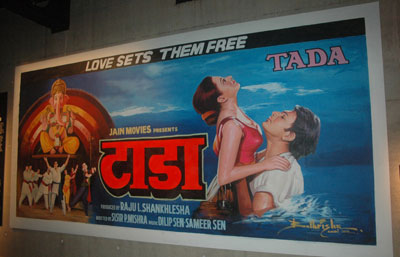 The exhibition "BOLLYWOOD”, shown at the Museum of World Cultures in Gothenburg, supposed to close down in September 2009, will continue until 30 May 2010. The exhibition, previously also shown at the Museum of Far Eastern Antiquities (Östasiatiska
Museet) in Stockholm, takes off in Indian films and shows how contemporary India is connected
to its past through stories and myths about love, gods and heroes. What is Bollywood? Why has it become so fantastically popular? Who are the world's most popular movie stars, really? During this exhibition period many programmes with film shows, dance performances and lectures are organised.
In the exhibition, produced by the Museum of World Culture in cooperation with the Museum of Far Eastern Antiquities and the Helsinki City Art Museum in Finland, the entire family may enjoy experiences from a world that still seems to be far from our daily lives. Or is that really so? In the Bollywood exhibition, the audience can try to be a singing star, record their own Bollywood film and dance in great dance scenes from popular Bollywood movies. The exhibition discusses what Bollywood as a cultural expression actually consists of and how such a massive success can affect your world view. Venue: Världskulturmuseet, Södra Vägen 54, Göteborg. More
information.
The exhibition "BOLLYWOOD”, shown at the Museum of World Cultures in Gothenburg, supposed to close down in September 2009, will continue until 30 May 2010. The exhibition, previously also shown at the Museum of Far Eastern Antiquities (Östasiatiska
Museet) in Stockholm, takes off in Indian films and shows how contemporary India is connected
to its past through stories and myths about love, gods and heroes. What is Bollywood? Why has it become so fantastically popular? Who are the world's most popular movie stars, really? During this exhibition period many programmes with film shows, dance performances and lectures are organised.
In the exhibition, produced by the Museum of World Culture in cooperation with the Museum of Far Eastern Antiquities and the Helsinki City Art Museum in Finland, the entire family may enjoy experiences from a world that still seems to be far from our daily lives. Or is that really so? In the Bollywood exhibition, the audience can try to be a singing star, record their own Bollywood film and dance in great dance scenes from popular Bollywood movies. The exhibition discusses what Bollywood as a cultural expression actually consists of and how such a massive success can affect your world view. Venue: Världskulturmuseet, Södra Vägen 54, Göteborg. More
information.
• Satyajit Ray films to be shown in Copenhagen
Indisk Musikforening in Copenhagen organises not only concerts with renowned Indian musicians and dancers throughout the year. On Monday 16 November 2009, at 19.00, two films by the legendary Indian film director Satyajit Ray from Kolkata will be screened at Animationshusets Biograf, Tagensvej 85 F, Copenhagen. The films that will be screened are Mahanagar from 1963 (featuring Madabhi Mukherjee), and Nayak from 1966 (featuring Sharmila Tagore).
• Interesting new Indian films to be shown at the Florence Film Festival
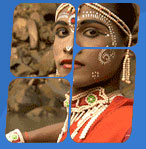 The 9th edition of River to River. Florence Indian Film Festival will be held 4–10
December 2009 in
Florence, Italy. The River to River festival, under the Patronage of the Embassy of India in Rome, is the first festival in the world entirely devoted to films from and about India. It is supported by Mediateca Regionale Toscana-Film Commission as part of the Cinquanta Giorni di Cinema Internazionale a Firenze and will be held at Odeon, the beautiful 20s-style theatre located in the heart of Florence. The opening film
for the 2010 festival will be ”Rang Rasiya” (Colours of Passion) by Ketan Mehta. In the film, Mehta tells the life of the famous Indian painter Raja Ravi Varma: from the love story with his muse Sugandha to the fundamentalist reactions to his
paintings, regarded as immoral portraits of the gods of Indian mythology. The closing film will be ”Sita Sings the Blues”, made by Nina Paley, an animation film, in which puppets tell the ancient and modern tragicomedy of Ramayana. Among the many more interesting films to be screened are Deepa Mehta’s latest film ”A Heaven on Earth”, about a Punjabi girl who moves to Canada for an arranged marriage; and the film ”Little Zizou”, a first direction by Sooni Taraporevala, Mira Nair’s award-winning screenwriter.
The 9th edition of River to River. Florence Indian Film Festival will be held 4–10
December 2009 in
Florence, Italy. The River to River festival, under the Patronage of the Embassy of India in Rome, is the first festival in the world entirely devoted to films from and about India. It is supported by Mediateca Regionale Toscana-Film Commission as part of the Cinquanta Giorni di Cinema Internazionale a Firenze and will be held at Odeon, the beautiful 20s-style theatre located in the heart of Florence. The opening film
for the 2010 festival will be ”Rang Rasiya” (Colours of Passion) by Ketan Mehta. In the film, Mehta tells the life of the famous Indian painter Raja Ravi Varma: from the love story with his muse Sugandha to the fundamentalist reactions to his
paintings, regarded as immoral portraits of the gods of Indian mythology. The closing film will be ”Sita Sings the Blues”, made by Nina Paley, an animation film, in which puppets tell the ancient and modern tragicomedy of Ramayana. Among the many more interesting films to be screened are Deepa Mehta’s latest film ”A Heaven on Earth”, about a Punjabi girl who moves to Canada for an arranged marriage; and the film ”Little Zizou”, a first direction by Sooni Taraporevala, Mira Nair’s award-winning screenwriter.
More information.
• More information about South Asia related culture
in Sweden and Scandinavia
See SASNET’s page, http://www.sasnet.lu.se/culture.html
New and updated items on SASNET web site
• Swedish departments where research on
South Asia is going on:
Constantly added to the list of research environments at Swedish
universities, presented by SASNET. The full list now includes 258 departments,
with detailed descriptions of the South Asia related research and education
taking place! Go to http://www.sasnet.lu.se/environment.html
• Useful travelling information
Look at http://www.sasnet.lu.se/travelling.html.
Updated travel advises from the The British Foreign & Commonwealth
Office about safety aspects on travelling to the countries of
South Asia.
Best regards,
Lars Eklund
deputy director/webmaster
SASNET/Swedish South Asian Studies Network
SASNET is a national network for research, education, and information about South Asia based at Lund University. Its aim is to promote a dynamic networking process in which Swedish researchers co-operate with researchers in South Asia and globally.
The SASNET network is open to all the sciences. Priority is given to interdisciplinary cooperation across faculties, and more particularly to institutions in the Nordic countries and South Asia. SASNET believes that South Asian studies will be most fruitfully pursued as a cooperative endeavour between researchers in different institutions who have a solid base in their mother disciplines.
The network is financed by Sida (Swedish
International Development Cooperation Agency) and by Lund
University.
Postal address: SASNET – Swedish South Asian Studies Network,
Scheelevägen 15 D, SE-223 70 Lund, Sweden
Visiting address: Ideon Research Park, House Alpha 1 (first floor,
room no. 2040), in the premises of the Centre for East and South
East Asian Studies at Lund University (ACE).
Phone: + 46 46 222 73 40
Fax: + 46 46 222 30 41
E-mail: sasnet@sasnet.lu.se
Web site:
http://www.sasnet.lu.se
SASNET - Swedish South Asian Studies Network/Lund
University
Address: Scheelevägen 15 D, SE-223 70 Lund, Sweden
Phone: +46 46 222 73 40
Webmaster: Lars Eklund
Last updated
2011-01-19
